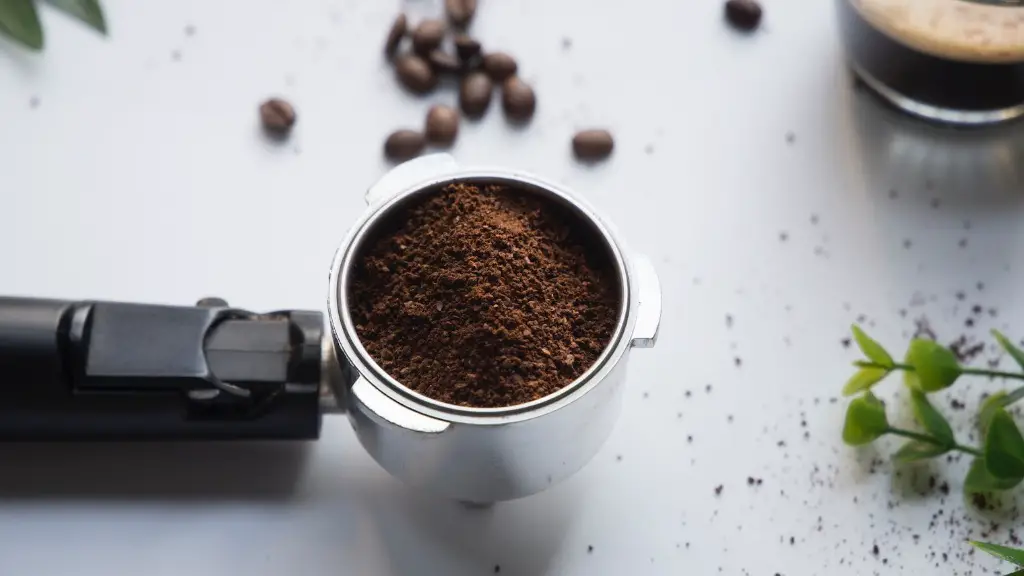Coffee is one of the most popular beverages in the world, with many people choosing to drink it for its energizing and stimulating effects. But is it really good for your diet? There are many conflicting opinions and views about this drink and its potential to help or harm our health.
According to experts, drinking coffee in moderation may actually be beneficial for some diets. Studies have demonstrated that it can provide a natural source of antioxidants, and has been found to improve alertness and concentration. Additionally, the caffeine present in coffee increases metabolism, which can help to burn fat faster.
While having a cup or two of coffee every day may be beneficial, drinking too much can have a negative effect on your diet. Too much caffeine can cause nervousness, anxiety and can lead to dehydration. Furthermore, people who drink caffeinated drinks frequently tend to eat more than they would otherwise. This can cause an increase in weight that may offset the improved metabolism from the caffeine.
So what should you do if you’re trying to maintain a healthy diet and don’t want to give up drinking coffee? One option is to switch from drinking regular coffee to a healthier alternative. There are now many types of coffee on the market that are made using different blends of beans and natural additives, such as cinnamon and nutmeg. These coffees may be better for your health and can provide a more flavorful experience.
Another option is to limit your coffee intake to one or two cups per day and consume other forms of caffeine, such as green tea or dark chocolate. Green tea has been found to have numerous health benefits and is much lower in caffeine than coffee. Dark chocolate can provide a source of antioxidants and flavor with minimal amounts of caffeine.
Ultimately, while drinking coffee may not be bad for a diet, consuming too much can be. To enjoy the benefits of this delicious beverage while still maintaining a healthy lifestyle it is important to be aware of the potential risks and to practice moderation.
Coffee Alternatives
For those looking for a way to limit their coffee intake without having to miss out on their favorite ritual, there are a few alternatives that can be tried.
Switching to decaffeinated coffee can be a great way to reduce your caffeine intake and still get the flavor that the beverage delivers. Decaf coffee is typically prepared using a process called ‘water processing’ which ensures that all of the caffeine is removed without too many changes in flavor.
Coffee substitutes can also make for an interesting and flavorful beverage. Chicory is a commonly used coffee substitute that is roasted and ground just like regular coffee, but has its own unique flavor. Other alternatives include roasted grains, nuts and seeds which can create a similar hot beverage with much lower levels of caffeine.
Finally, cold brew coffee is another great way to get the flavor of coffee without the high caffeine intake. Cold brew coffee is prepared with time-intensive processes such as steeping, which can take anywhere from 12-20 hours to complete. This method of brewing uses lower temperatures, meaning that less of the coffee’s flavor and caffeine is extracted. This type of coffee is much less acidic and can even be served over ice for a refreshing and flavorful beverage.
Health Benefits
Despite the potential for excess caffeine consumption when drinking coffee, there are also some potential health benefits that come with consuming the beverage.
Coffee has been found to have useful compounds such as chlorogenic acid, which may help to reduce insulin resistance and decrease the risk of developing diabetes. Coffee is also a source of antioxidants, which makes it a beneficial drink for those trying to maintain their health. Similarly, coffee may help reduce inflammation, as it has been found to contain anti-inflammatory compounds.
Moreover, coffee can be a great way to boost your intake of certain minerals including magnesium and potassium, both of which are essential for our overall health. Furthermore, coffee has been associated with improved cognitive functioning and can even spur creativity in some cases.
In conclusion, the health benefits associated with coffee consumption depend on an individual’s diet, lifestyle, and their overall health. Although there are potential health benefits, it is important to remember that moderation is key and too much caffeine can be damaging.
Coffee Preparation
The way in which coffee is prepared can also have an effect on its health benefits. There are numerous methods of brewing coffee, ranging from traditional French presses and mokapots to more modern automatic machines. Depending on the type of brewing method you choose, you may end up with different levels of caffeine and flavor.
For instance, the traditional French press method is known to deliver a strong, flavorful cup of coffee that is higher in caffeine content than other methods. Similarly, mokapots, like the French press, steep the ground beans to provide a more concentrated cup of coffee. On the other hand, automatic brewing machines typically use paper filters, which removes some of the flavor, oils, and antioxidants from the beverage.
Of course, there are many more methods of preparing coffee and each one will bring different results. It may be helpful to experiment with different techniques to find the one that best suits your tastes and health goals.
Coffee Quality
The quality of your coffee can also have an effect on its health benefits. In particular, the quality of the beans used in the drink can help determine the amount and type of antioxidants present in the beverage. Similarly, the origin of the beans can affect the flavor, caffeine content, and other nutrients.
It is important to note that coffee beans can become rancid if they are not stored in the right way. This can lead to unpleasant flavors and may even have a negative effect on your health. Therefore, it is recommended to purchase freshly roasted beans from a reliable supplier. Additionally, it is advisable to store the beans in an air tight container and away from direct sunlight.
Overall, the quality of coffee can significantly impact the health benefits and overall experience of consuming the beverage. When trying to find the best coffee for your diet and health it is important to consider not only the brewing method, but also the origin and quality of the beans.





